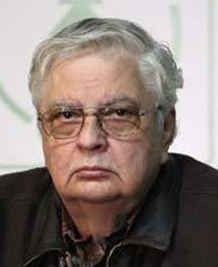A VISION OF THE POST-PANDEMIC ECONOMY
DOI:
https://doi.org/10.53477/2668-5094-21-23Keywords:
coronavirus crisis; value chains; multilateralism-unilateralism; protectionism, neoliberal global economic model.Abstract
Coronavirus has generated changes and mutations not only in the conduct of our daily lives, but also in the organization and functioning of the economic mechanism at national and global level.
The rapid changes and shifts that are taking place in the economy are for the moment the result of the political mainstream, especially the governmental one, and of the system of international financial institutions. What is visible and certain is the elimination of some limits in giving up ideological principles and established rules of the functioning of the economic mechanism. Thus, the neoclassical ideology, the foundation of the whole scaffolding of the global economic policies, easily compromises by admitting that in the current conditions state interventionism has a more important role than free market laws in counteracting the effects of the pandemic on the economy. This process easily went beyond the regulations of the liberalization of trade in goods, returning to protectionism with nationalist accents as well as to bans on food and medicine exports. The principle of European solidarity is being threatened by unilateral decisions taken by Member States, or by the abandonment of European agreements in order to replace them by national decisions. Globalization was based on the imperative to produce, sell and buy, move, circulate, move on. Its ideology of progress is based on the idea that the economy must definitely replace politics. The essence of the system was the abolishment of limits: more trade, more and more goods, more and more profits to allow money to circulate and turn into capital. This whole concept of development has ceased to be the guiding principle of economic growth and development, the current trend being the return to national borders, if not in a strictly territorial sense, at least in an economic sense. That is why one of the important changes of recent months is the emergence of policies designed to change the meaning of supply chains. Rethinking supply chains is a consequence of border closures or of the sudden closure of transport. It is a critical point of pressure that weighs mainly on car manufacturers and capital goods. As a result, there will be a trend of relocating production to European or Maghreb countries where wages remain lower than the European average. Another quick and important change is the one related to the role of the state in the economy, neoliberalism successfully promoting throughout the global economy the idea of the need for the limited role of state decision and state interventionism in the economy. The current change consists precisely in reversing the role of the state from passivity to activity, considered as the only one capable of ensuring an efficient system for managing the pandemic and restarting the economy. For many analysts, the coronavirus crisis could lead to a profound change in the global economic model and in the individual economic behavior.This is an extremely important issue also from the perspective of Romania's future. We are at a turning point and will have to make quick and complex decisions, because Romania risks entering a post-crisis period in an economic stagnation difficult to overcome, due to the lack of productivity, innovation and modern management. The gaps between Romania and the vast majority of European countries will be maintained, condemning us to occupy a marginal and lower place in the hierarchy of the European economy, characterized by a high and dangerous degree of dependence on the evolution and dynamics of markets in the strong states of the European Union. The explanation of this situation lies in the type and functioning of the structure of the Romanian economy. The current structure of the Romanian economy lies on the last concentric circle of European integration, if its center is considered the western core of the EU. There is no doubt about this inevitability. The crisis caused by the pandemic already exists and despite the optimism of some international financial institutions it will profoundly affect the state of the world economy and the life of the citizens. There will be not only major changes in the paradigm of the neoliberal model of the global economy but also changes in the balance of power between the world's major economic and political actors. The trade war between the USA and China is also beginning to have important political aspects, as the fight for world leadership between these two superpowers is generating tensions over the entire world. These tensions will surely have many "collateral victims" through the direct and indirect damage that many national economies, even the European Union, will suffer, as a result of the economic
and political consequences of the US and China entering a state that some Western analysts define as " a cold war but with a tendency to warm up". These elements will aggravate the pressure that the pandemic crisis will put on the state of the world economy, determining the extent and depth of the effects of the crisis not only on the economic field but also on the balance and stability of international relations.
References
Brzezinski Z., Out of control, 1993.
Cassidy J., The Coronavirus is Transforming Politics and Economics.
/04/2020.
Conseil europeene: Cooperation multilaterale pour une reprise mondiale,
Communique de presee, 3.02.2021.
„Coronavirus: la déclaration du président français Emmanuel Macron
/03/2020”, https://www.youtube.com/watch?v=U_qD7OliGjw.
Jean S., Directeur CEPII, Paris: ”L’economie mondiale 2020”.
von der Leyen U., Les prescriptions de l’Union Européenne pour le
déconfinement, 16.04.2020.
Montenay Y., Chine: la nouvelle guerre a commencé, “Contrepoints”,
04.2021.
de Nicolay AH, Le multilateralisme comme levier du protectionnisme,
Universite Catolique de Louvain, https://dial.uclouvain.be/memoire/
ucl/fr/object/thesis%3A1767/datastream/PDF_01/view.
Peterson Institute for International Economics, US-China phase one tracker:
China’s purchases of US goods, 27.01.2021.


